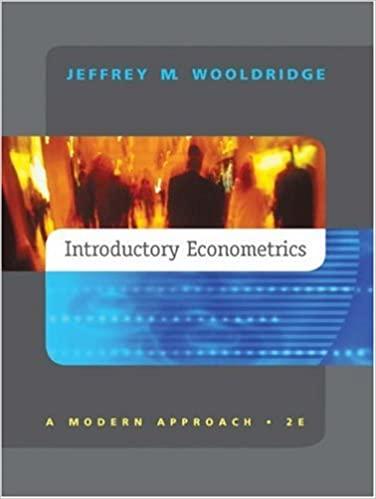Question
1. Capitalism is an economic system based on a division of people into two primary classes: workers and owners. Explain the difference between these two
1. Capitalism is an economic system based on a division of people into two primary classes: workers and owners. Explain the difference between these two categories of people and how they relate to one another. How did this class division start? How is it maintained? Why do so few people permanently switch classes?
2. The laws and logic of capitalism are firm and difficult for any individual person to break. But the laws of nature are equally firm and do not change simply because we want them to. Is there a contradiction - or clash - between these two sets of laws and logic? Is capitalism compatible with preserving a healthy environmental base for human and animal life? Or will capitalism inevitably push the climate crisis to deeper and more destructive lengths?
3. It is a widely held belief that capitalism generates innovation. The argument seems simple enough on the surface, but when put to the test, it doesn't hold up very well. Why do people believe that capitalism leads to transformative innovation? Why is that belief inaccurate or, at the very least, incomplete? What forms of technology does capitalism provide and what forms of technology are outside the realm of what makes sense for capitalist businesses to pursue?
4. One of the most common arguments in favour of capitalism is that there is no viable alternative. If this is true, then we would have to accept capitalism as the "least bad" option. But billions of people in the past century have disagreed with that statement and struggled to build various forms of socialism as a better alternative to capitalism. What is socialism? What distinguishes it from capitalism? Whose conditions of life tend to improve under a socialist economic system and whose conditions typically get worse?
5. Is capitalism democratic? We are often told that the free market is the perfect crystalization of what the public needs and wants, and that it provides for all our needs at the price that we all think is fair. Does this story hold up to an examination of the facts? Are everyone's needs equally met by the free market, or does it inherently favour some people over others, based on their economic circumstances? If people truly had democratic control over their lives, would the world remain basically the same or would it change? What do you think people would change?
Step by Step Solution
There are 3 Steps involved in it
Step: 1

Get Instant Access to Expert-Tailored Solutions
See step-by-step solutions with expert insights and AI powered tools for academic success
Step: 2

Step: 3

Ace Your Homework with AI
Get the answers you need in no time with our AI-driven, step-by-step assistance
Get Started


